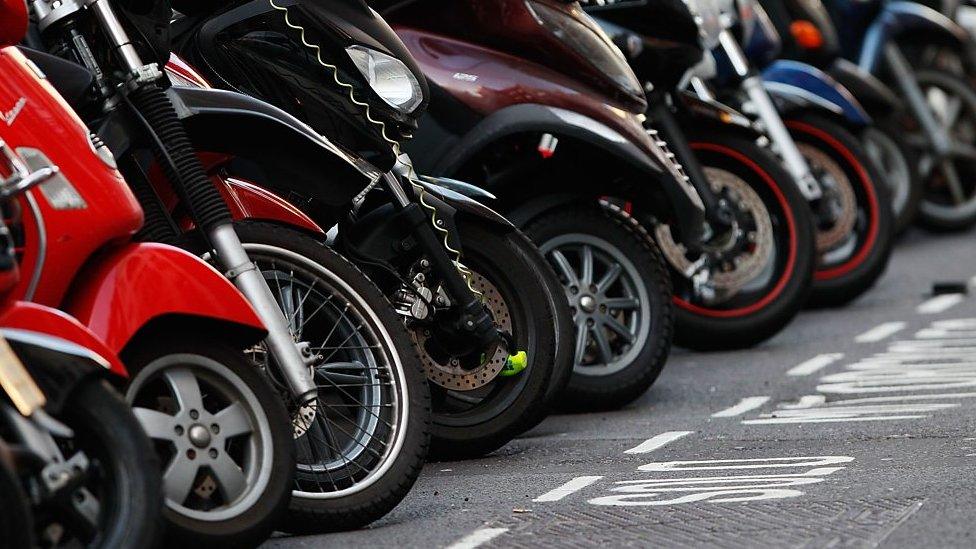How can we stay safe against the rise of moped crime?
- Published
The London streets most affected by ride-by moped thefts
On Monday comedian Michael McIntyre became one of the latest victims of moped crime when he was robbed by men while parked outside his children's north London school.
On the same day a 24-year-old woman was hospitalised after moped robbers punched her to the ground in a bid to steal her phone.
The number of offences carried out using mopeds in the capital leapt from 827 offences in 2012 to more than 23,000 in 2017.
So, how can we protect ourselves from such attacks?
Kirsty Henderson is the director of Personal Safety London - a company that provides personal safety and self defence training.
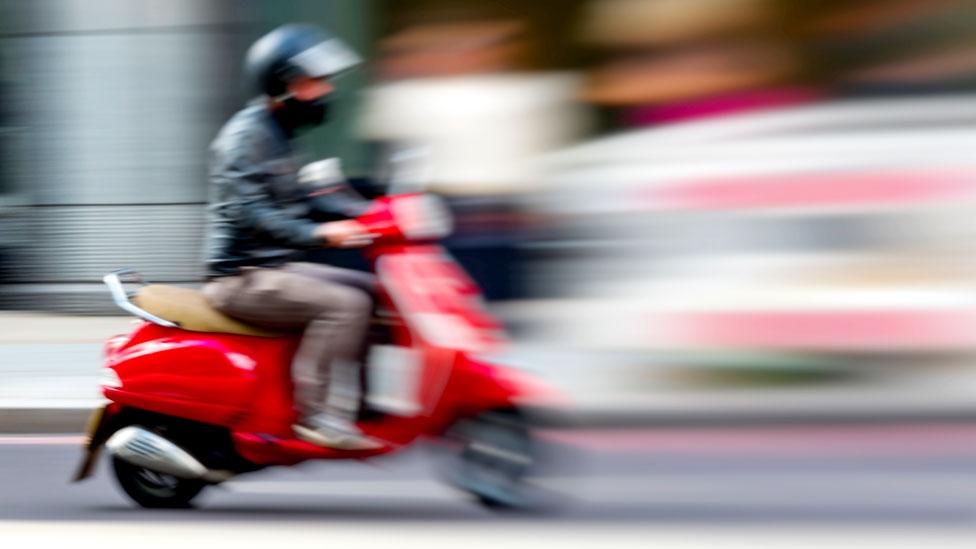
Get off your phone
The first thing she advises is to not use phones when on the move - this includes taking out headphones.
Listening to music or podcasts reduces spatial awareness and makes people more likely to be caught off guard, she says.
"It means you are in a bubble."
She also warns against taking calls or checking social media.
If you have to take a call or check something on your phone it is best to pop into a shop or cafe, she advises.
"Lots of people see their route home from work as a time to relax but it is a time you should be vigilant - travelling is when you are at most risk," she says.
The Met Police say using hands-free devices could prevent theft. Officers advise sticking to well-lit streets and paths which are more likely to be covered by CCTV.
Looking confident can also help. The police suggest moving with purpose can make someone less likely to be targeted.
Most sports shops sell running belts and these can be useful for protecting valuables.
Instead of keeping mobiles, credit cards or keys in a handbag, they can be kept safely hidden from sight.
The Suzy Lamplugh Trust - a charity seeking to reduce violence - says it is good practice to spread out personal belongings, for instance keeping a phone in a bag, and keeping keys in a coat pocket and money card in a trouser pocket.
That way if your bag is stolen you won't lose everything at once.
Stories of moped crime from victims and police
Disguise
Some items, such as laptops, would be tricky to fit in a sports belt but there are other ways you can reduce the risk of theft.
One piece of advice Ms Henderson offers is to store a laptop, not in a laptop bag but in a sports bag or even a plastic bag.
Even draping a jacket over the item could stop the laptop from attracting the attention of potential thieves.
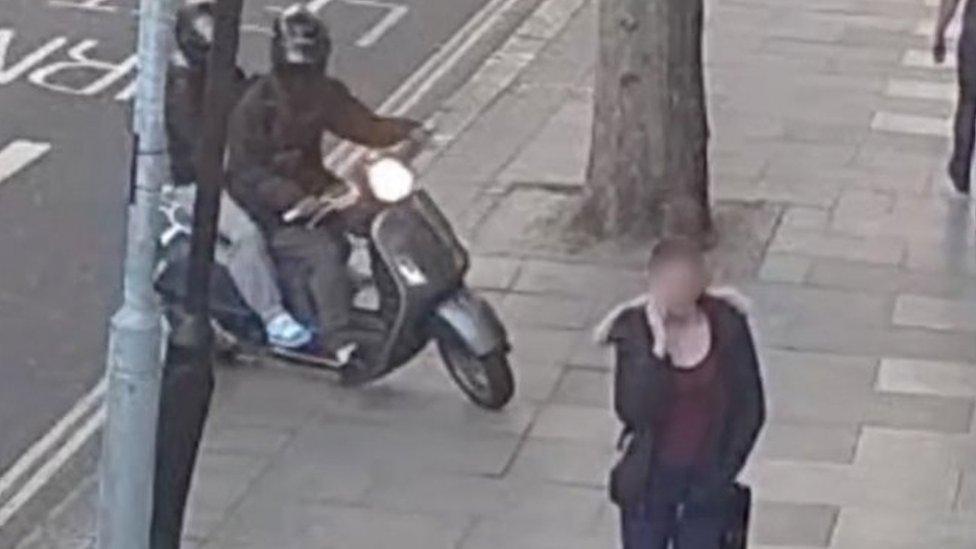
A criminology expert said 'nowadays people are phone zombies' unaware of their surroundings
If someone is worried, she suggests holding the bag on the building side rather than the road side of the street, and if possible keeping away from the kerb.
In case of danger being able to move easily is key.
People should avoid wearing heels to and from work, and instead invest in some roll-up flats for the commute, advises Ms Henderson.
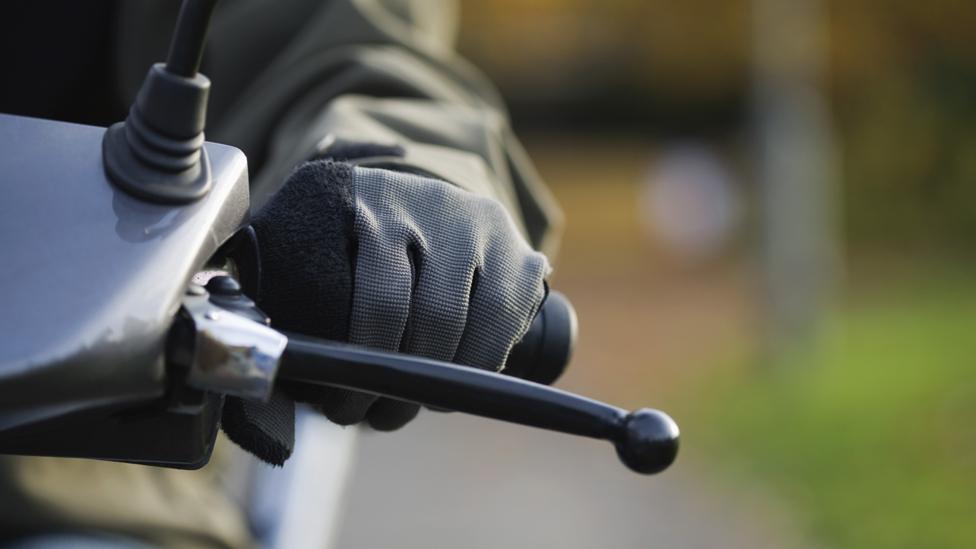
Ultimately, Kirsty Henderson warns people against trying to fight the attackers to get back their belonging.
Valuable items can be replaced, she says, but physical interactions can "really shake people up".
"PTSD (post-traumatic stress disorder) can last a long time," she adds.
What are the police doing?
The Met Police have announced a number of tactics aimed at reducing crimes carried out on mopeds and scooters.
This includes the use of mobile remote-controlled "stingers" which can be deployed to puncture the tyres of suspects' vehicles.
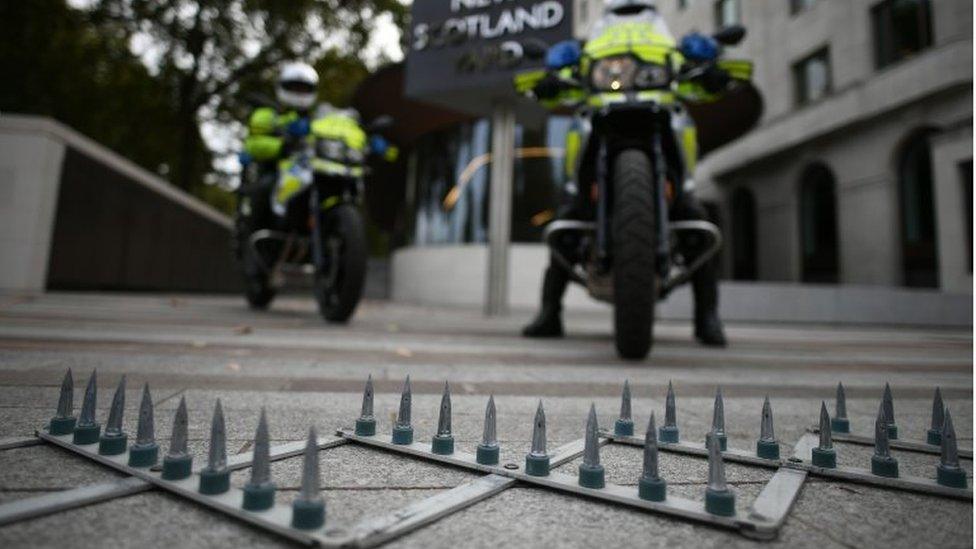
Police are also being trained to use a spray which marks suspects with an invisible dye that clings to skin and clothing for weeks or months.
The spray can be identified under UV light and allows police to link a suspect to a crime scene.
Throwing onions and other responses
Clara from London deployed a novel approach to would-be moped thieves.
"I have seen countless thefts of phones by moped users," she told the BBC.
"I suppose it had prepared me for when, two months ago, a moped driver attempted to snatch my phone from my hand while I was walking back from the grocery store.
"Luckily, I managed to dodge out of the way and, grabbing a onion from my groceries, I threw it at the driver."
George Enock from Reading wants to see pillion riders - passengers on mopeds - banned in town centres.
Minerva Aponte Jolly says motorcycle drivers in Guatemala City are required to wear vests with their plate numbers on in big letters.
This makes it easier for drivers to be identified.
- Published5 June 2018

- Published31 October 2017
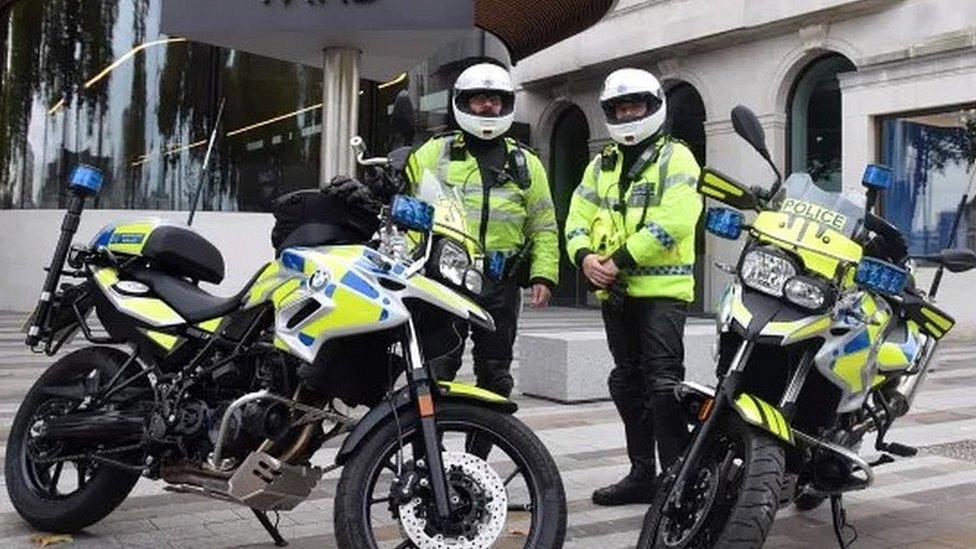
- Published11 May 2018
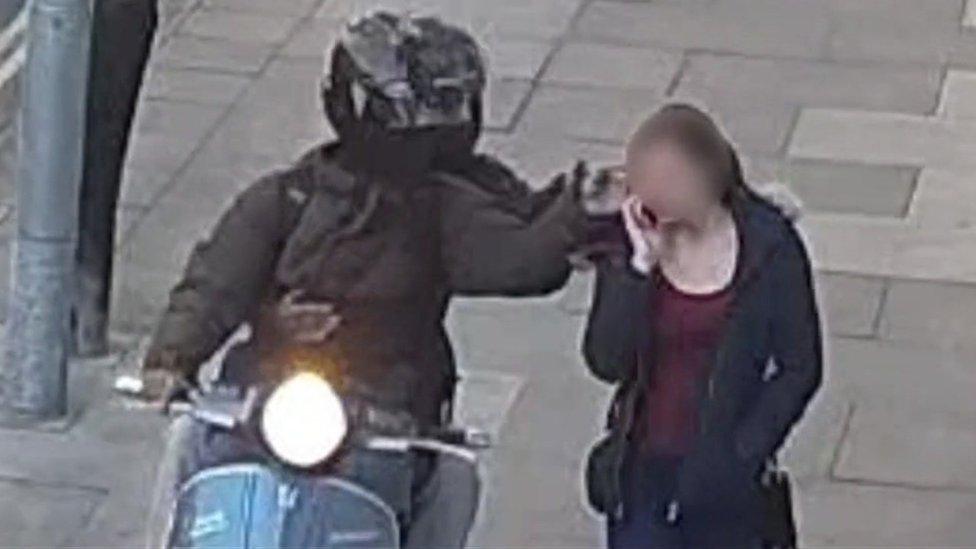
- Published21 March 2018
